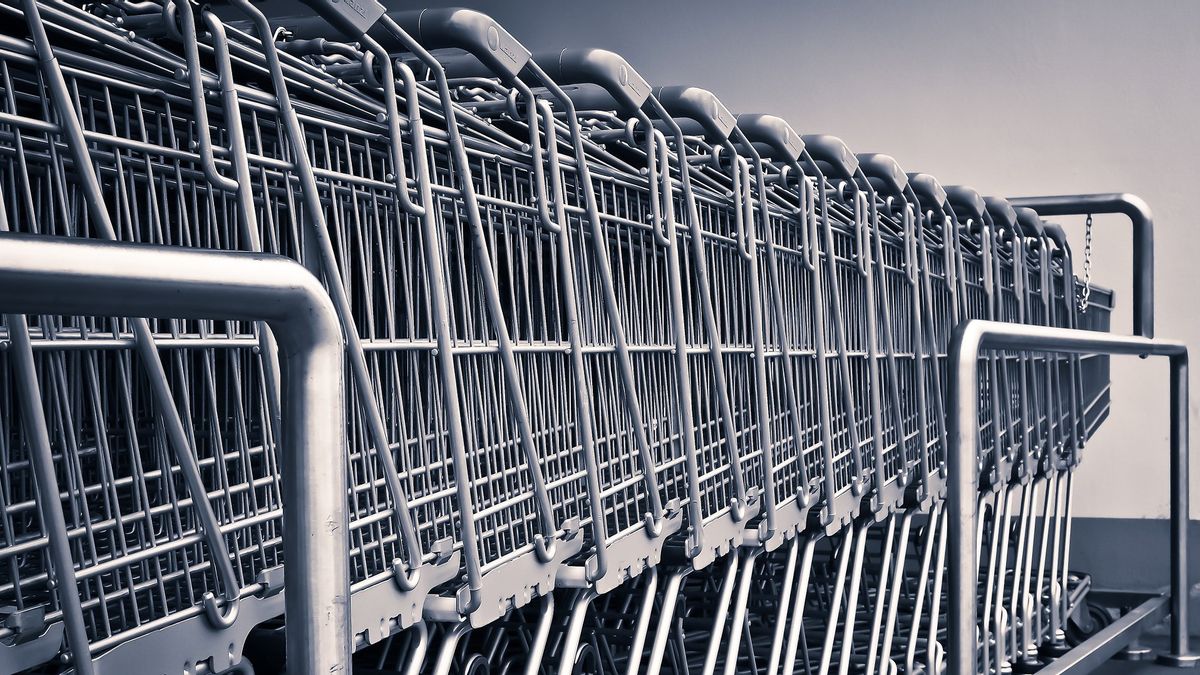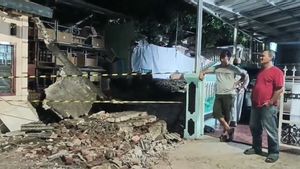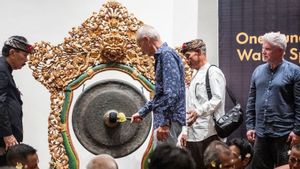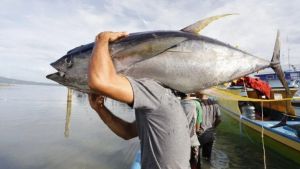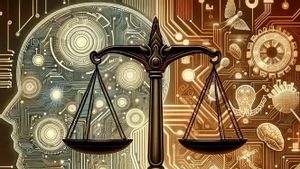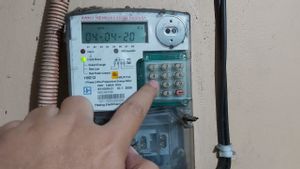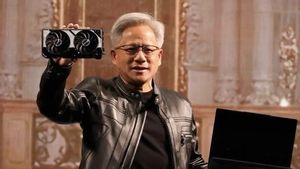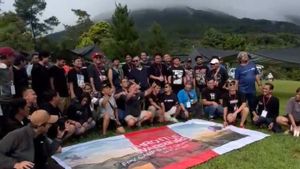JAKARTA - "In the end, it was not the corona that killed us. But, you own the money," wrote in the upload of comedian and actor Aming Sugandhi. At first glance, indeed. However, if explored, Aming's sentence actually has a deep meaning about the relationship between humans, nature, and the corona virus, aka COVID-19, which has infected various parts of the world.
Last Monday, March 2, President Joko Widodo (Jokowi) announced that two Indonesian citizens had tested positive for COVID-19. After Jokowi, a more complete statement was made by Minister of Health (Menkes) Terawan Agus Putranto. He explained that the two people were a 61-year-old mother and her 31-year-old child. Both of them live in Depok.
The first infection occurred in the child who was dancing with a Japanese citizen on February 14. After the dance on Valentine's Eve, he had a prolonged cough and finally tested positive for COVID-19 on February 28. "Then, on the 26th, he just asked to be treated, how come the cough didn't go away, had a shortness of breath, and had a little fever. Then he was treated," said Terawan at that time.
Shortly after the announcements, social media was filled with pictures and videos showing public panic in shopping centers. They are busy buying up daily necessities, ranging from groceries to disinfectants. In addition, other waves also attacked places selling medical masks and hand sanitizers. Panic buying is widespread.

Aming criticized this phenomenon. According to him, the panic buying reaction shown by the community, at the same time, can be seen as a form of high-level human egoism. But, that's not the saddest part. The hardest irony is that there appears to be a class system in panic buying. Those who have excess money are indirectly "killing" compatriots from other classes.
In the end, humanity is in question. In fact, in Aming's eyes, rather than viruses, humans are actually a danger. "Flocked to shop until the stock was empty! Poor friends were just dumbfounded when their siblings were starving themselves. Who is worse, corona or humans?"
Why and how?
This situation is not unique to Indonesia. In Singapore, the panic buying situation also occurs when the government increases the alert level for COVID-19 to the orange level. At that time, 33 people in the Lion Country tested positive for COVID-19. The orange level is the highest level in the history of the spread of COVID-19 in Singapore.
It is one level below the red level which is the most dangerous level. The red level is a sign that the spread of the virus has reached its most severe level, where isolation is mandatory. This means that the logistics stock will be limited. This fact has prompted many people to storm shopping centers to buy groceries and other necessities of life.
Previously, in Hong Kong, Japan, and of course China, the same panic occurred. The next question is, of course, why is this happening and how to stop this madness? Sociologist at the State Islamic University (UIN) Syarif Hidayatullah, Jakarta, Tantan Hermansyah, explains this phenomenon in a sociological perspective.
According to Tantan, this panic was actually unstoppable. It includes all social entities at various levels. The way it works, according to Tantan, is almost the same as dominoes. Individual panic will spread to other people. Whether they are rich or commonplace.
These two groups share the same logic about the terrible spread of COVID-19, why they need masks, and the shadow of running out of masks and hand sanitizers which are two variables that trigger panic. "Those in the community of various groups actually only happen because of mutual influence," said Tantan when contacted by VOI, Wednesday, March 3.

The question of social class that appears in this phenomenon. According to Tantan, this phenomenon is real. That wealthy people fueled by mixed egos are crazy about buying up all the necessities of life. There is no room for other people in their heads. The ones who are affected, in the end, like it or not are the commoners.
"People who have little money, have limited resources, they want to get what is the panic variable, namely masks and hand sanitizers. Now, the big ones, those with a lot of money experience the same logic. In their heads they also realize that the supply ( masks and hand sanitizers) are not balanced with demand, "said Tantan.
In this context, Tantan encourages the government to step in. The government must provide a middle way to deal with the oppression of the bourgeoisie against the poor. However, the power of the bourgeoisie will not be stopped. They have all the resources to master masks and hand sanitizers.
Therefore, the government must be on the side of the commoners. By issuing a presidential instruction (inpres) to control prices for masks and hand sanitizers, for example. Yes, even though free masks and hand sanitizers sound better for the people.
"That's where the state must be present there. People in the middle to lower classes may not buy a lot. But, those who are rich, because of that, 'want to increase 500 times, I also have no problem.' But life cannot be like that. That's where the government controls it, "said Tantan.
The English, Chinese, Japanese, Arabic, and French versions are automatically generated by the AI. So there may still be inaccuracies in translating, please always see Indonesian as our main language. (system supported by DigitalSiber.id)
